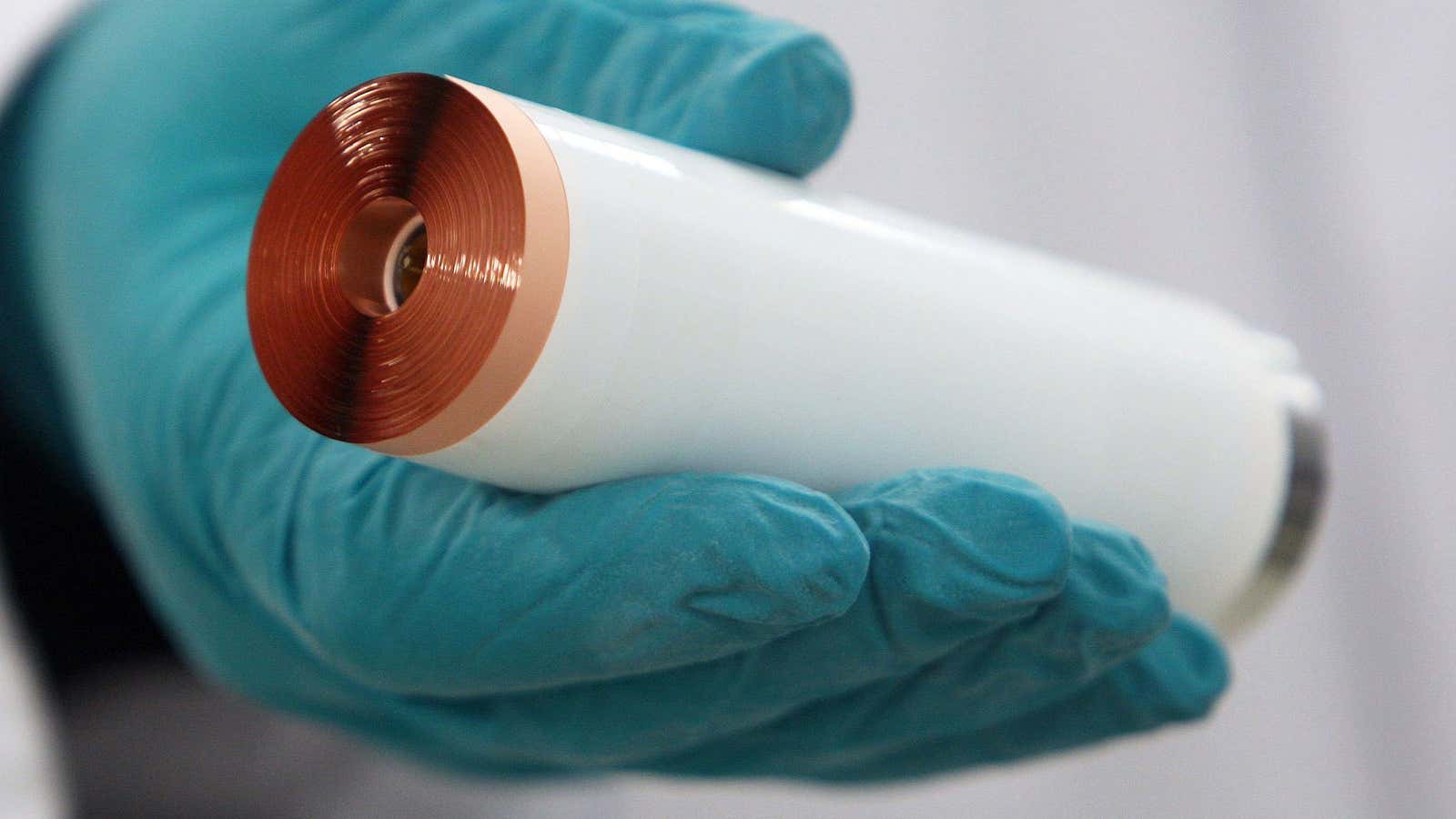Revolutionary batteries have tended to be the domain of scientists and engineers tinkering for years, sometimes decades, in relative obscurity with little hope of reaching market. Even incremental change arrives slowly, driven by the needs of small electronic devices such as mobile phones.
Yet this steady progress set the stage for sophisticated battery cells that, when linked together, were capable of powering cars, buildings, and entire electric grids. Soon everyone needed a better battery. In 2018, the race was on to scale up the next generation of battery manufacturing.
As a result, corporate deals to invest in battery technology soared to $516 million, a five-fold increase over 2017, according to Wood Mackenzie Power & Renewables. This comes on top of more than in $1.3 billion in venture capital and private equity money in energy storage, as well as internal research and development.
Volkswagen, Siemens, Bosch, Total, and Samsung all struck big deals aimed at gaining an edge in energy density, charging, manufacturing, or cost. VW invested $100 million in a startup building lithium metal solid-state batteries. French battery maker Saft (part of Total) joined Siemens and others in a $233 million bid to build advanced batteries for EVs, trains, ships, planes, and utilities.
It’s probably a small down payment on next year. The biggest global carmakers in Germany, China, and the US have already earmarked $90 billion for developing batteries and electric vehicles over the next decade. “We’re all in,” Ford Moto’s executive chairman Bill Ford Jr earlier this year after announcing an $11 billion investment in 40 hybrid and fully electric vehicles by 2022.
